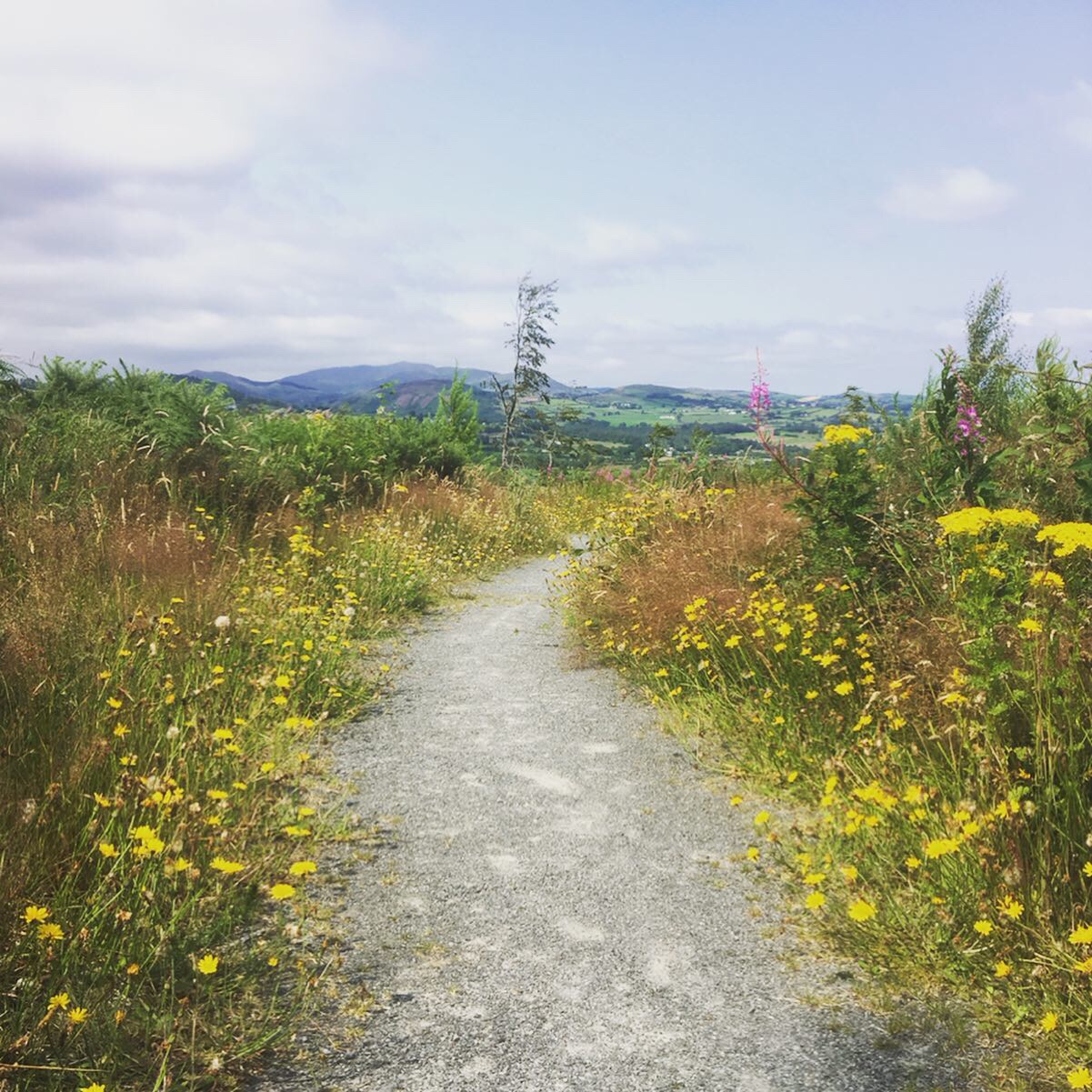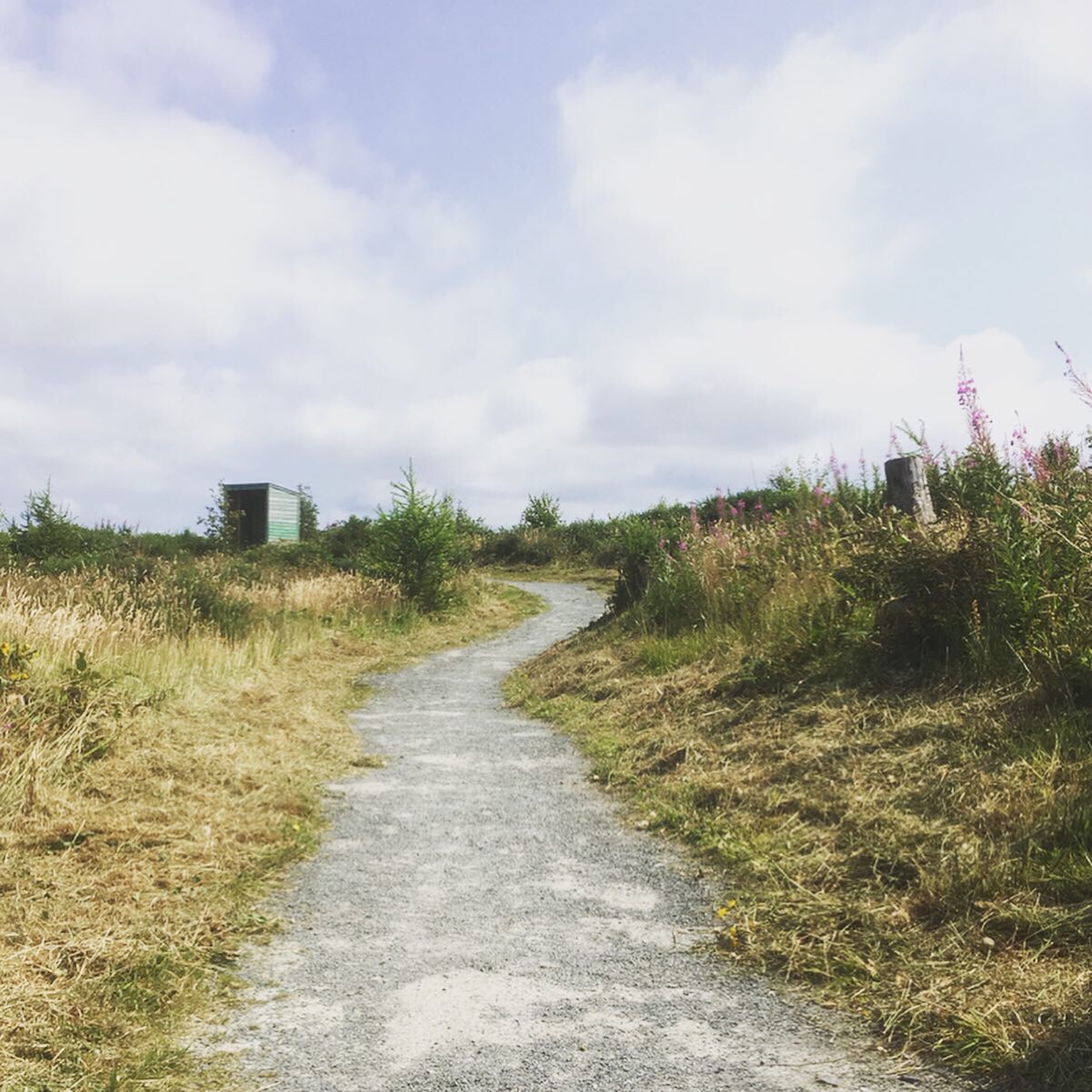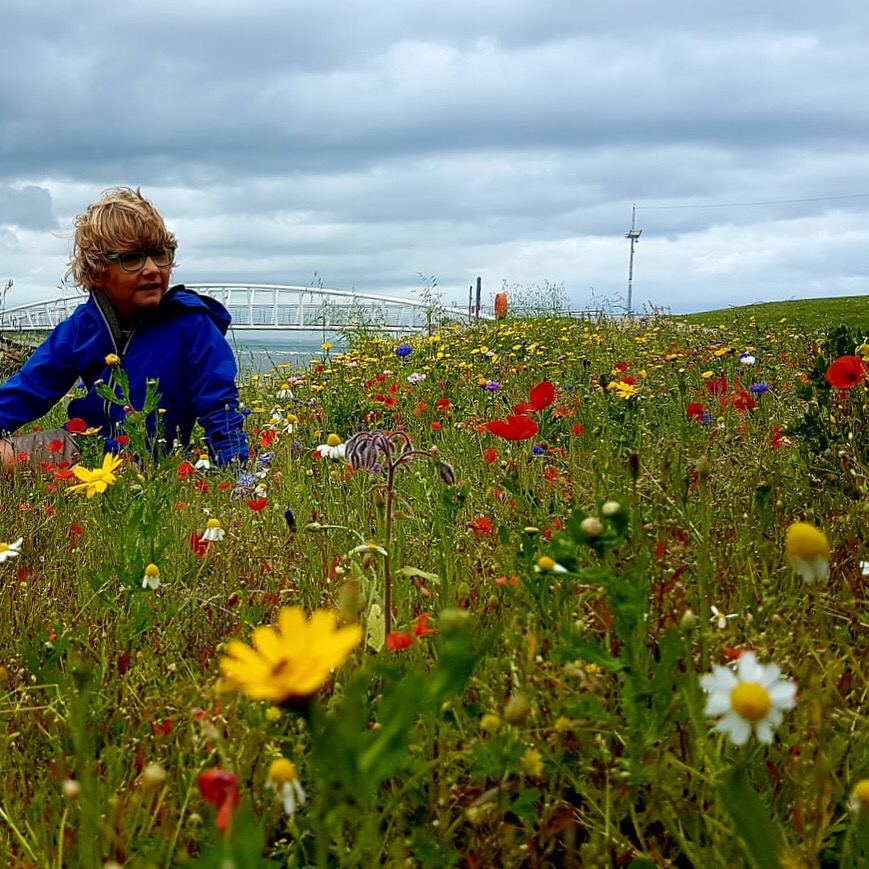The focus of Wellderness is on people. Making people feel better through time spent in nature. Making the world a better place because the people in it are happier. But the natural by-product of spending time in nature and one of the behind-the-scenes motivator to get people into nature is environmental in the conventional sense of the world. As nature can nurture us, so we must return the compliment. The more time we spend in nature, the more we realise we are a part of it, the more we will care for it and want to protect it, recognising it as our home and our source of comfort and joy.
If you have ever spent time with a young child in a garden, it’s likely that you will have witnessed first hand the utter sense of wonderment at nature. How a toddler can spent minutes (a lifetime in toddler time) observing a bee on a flower or a snail on a rock. We are born with a sense of this wonderment, born with a true understanding of our place in the world and how we are part of nature.

Throughout time and across the world, people have understood and indeed continue to understand that they must live in harmony with nature to thrive, physically, mentally and spiritually. But in the modern industrial age, we have created a separation from nature, disconnected from the seasons, living artificially, unfamiliar with whatever nature surrounds us, however limited that is. In doing so we have created an environment for ourselves which doesn’t allow us to thrive. That nagging sense of disconnect, that something is missing – that stems from the sense of being out of place.
It has also made us casual about the natural world and less inclined to protect it. We are disconnected from the environmental consequences of our decisions – whether that is how we heat our homes, fuel our cars, consume goods or wear clothing. Our disconnection from the natural world puts us in a bubble that pretends to exonerate us from the consequences of our decisions when of course no such absolution is really possible.


In board rooms across the country, decisions are made about the environment are based on the formula of a a spreadsheet. No matter what the impact assessment, the choice of what measure to take will be distilled into two options with corresponding lines on an excel spreadsheet. No matter how much the decision makers claim to be protectors of the environment (and I have been fortunate enough to have worked with reasonably environmentally conscious bods trapped in the corporate world) it is rare that the decision-maker has been to site to witness what will be affected. The decision comes down to numbers and lines of code. There is a disconnect from being there and feeling the impact of the decision, understanding the place and the impact our decisions have on it. We take decisions about the impact on the environment through the lens of numbers coloured by a glossy report from someone on site. We remove the decision makers from the environment impacted by their decision.
It is true that it is hard to care about someone or something when you don’t just don’t know it. How can we expect people to care about the environment when the closest they come to it is through a consultant’s report, an Instagram post or a BBC documentary? Without in any way wishing to undermine the amazing impact of series like Blue Planet, there is a legitimate question to answer on how embedded that sense of wanting to implement change really is when seen through a screen rather than actually felt with all the senses. I might be outraged by the sight of a turtle trapped in discarded plastic, but am I really moved to do anything about it? Really moved as opposed to paying it lipservice on a social media post? Or does that sense of outrage diminish when the next programme starts? Contrast that with connecting people to their own environs, to their local parks, rivers and coasts. How much greater the sense of outrage at discarded plastic when it encroaches into the realms of what feels like “yours”?
I would challenge that the real chance of long term environmental protection comes when people know, really know, the natural world in which they form part.
We know that the environment needs people who care about it. We treat the planet as a resource rather than as the home that it is. The counterbalance to this is that the more time you spend in the nature, the more you care about it. There is a delightful reinforcing loop created from this – the earth that sustains us gives us meaning and joy, in turn we will become the protector of that which nourishes us.
